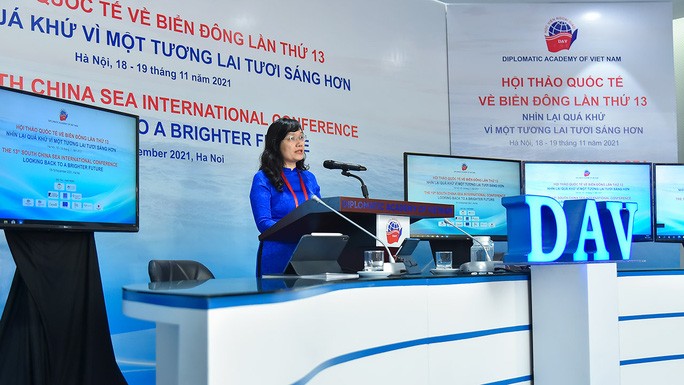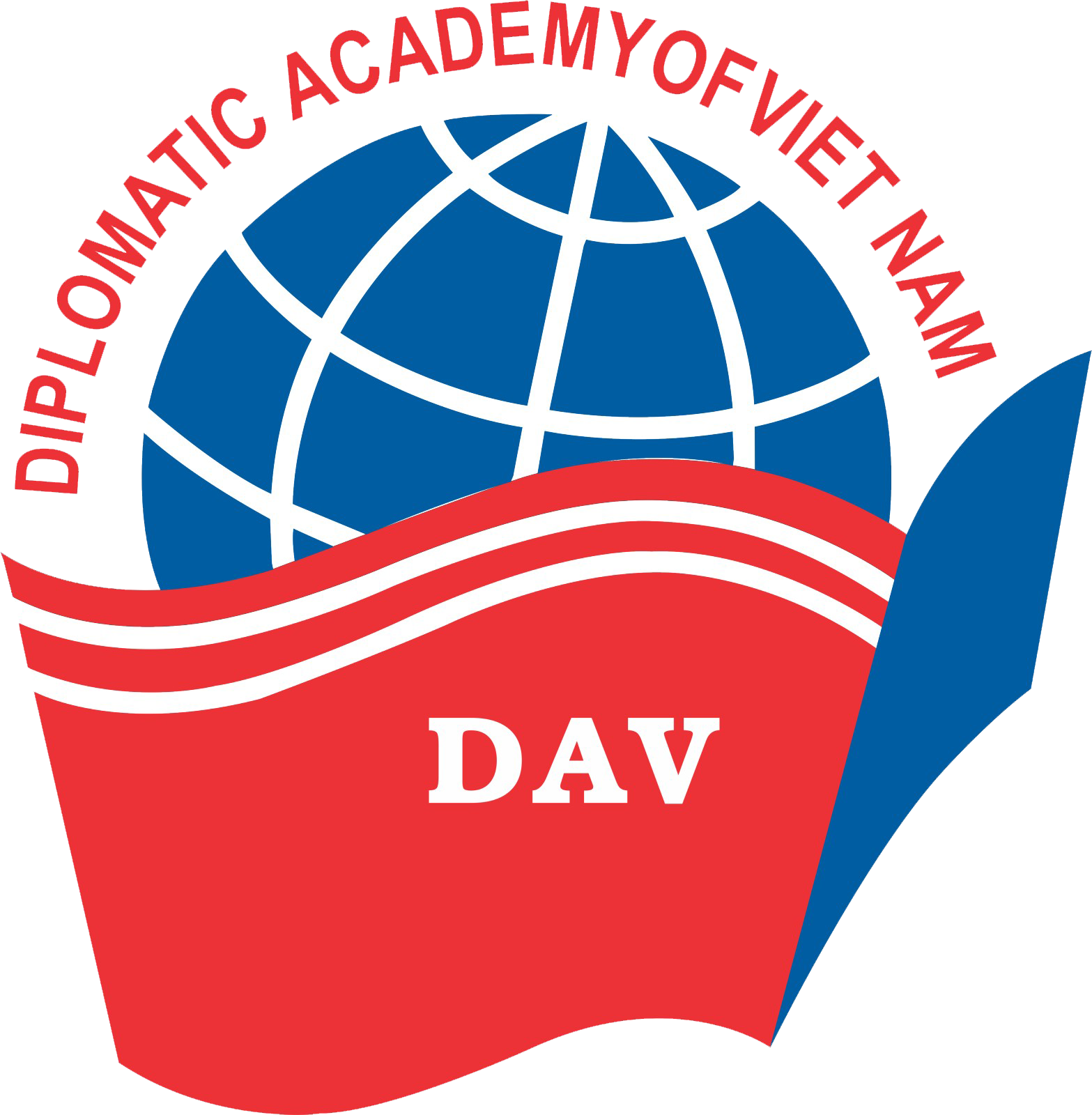
OPENING REMARKS OF DR. PHẠM LAN DUNG
OPENING REMARKS OF DR. PHẠM LAN DUNG, ACTING PRESIDENT, DIPLOMATIC ACADEMY OF VIETNAM
The 13th South China Sea International Conference
(Hanoi, November 18, 2021)
Excellency Mr. Pham Quang Hieu, Deputy Minister of Foreign Affairs
Your Excellencies, distinguished guests,
Excellency Ambassadors, Representatives of the Diplomatic Corps,
Distinguished scholars, colleagues here and those who are watching online,
I would like to warmly welcome you to the Diplomatic Academy of Vietnam’s 13th South China Sea International Scientific Conference with the theme “Looking back to a brighter future”, especially online delegates from all over the world. I regret that the Covid-19 pandemic has not yet allowed us the opportunity to convene in person.
Ladies and Gentlemen,
The Covid-19 pandemic has lasted longer than anticipated and continues to change the way our world operates. We have been learning how to actively adapt to the “new normal”. In this context, maintaining the South China Sea Conference is an effort of the Academy to adapt to that “new normal” by bringing together leading domestic and international scholars to discuss the South China Sea issues based on scientific, open and objective approach.
In recent years, numerous issues, related to maritime domain in general and the South China Sea in particular, continue to capture public attention and require collective solutions, such as marine environment protection, climate change, sustainable use of resources, protection of the rule-based order at sea and maritime security, fisheries, development of coastal communities, etc.
The year 2021 also witnesses heightened interest for the South China Sea from many countries and international forums, including the United Nations. The UN has emphasized its shared perception on respect for international law, regional rule-based order, and peaceful resolution of disputes in accordance with the United Nations Convention on the Law of the Sea (UNCLOS 1982). Countries increasingly appreciate the value of establishing a legal framework for activities at sea in accordance with common interests of the international community and maritime states. ASEAN has boldly expressed concerns about destabilising activities in the South China Sea and called for further cooperation. ASEAN has also resumed discussions with China on the Code of Conduct in the South China Sea (COC).
Ladies and Gentlemen,
While the South China Sea continues to draw attention, we need to understand related issues since this is the key in unpacking the complexities of the South China Sea, and moving towards a better future for the international community, the region and relevant parties. For that reason, our Conference this year has adopted the theme “Looking back to a brighter future”.
As you may know, the South China Sea Conference continues to be a prestigious and highly-anticipated academic event. It has gathered leading regional and global experts to discuss the issues of marine security, law of the sea, economic development, and marine environment protection. The Conference has helped raising regional and international understanding and awareness on various aspects of the South China Sea and made positive contributions to policy-making in order to maintain peace, stability, and promote cooperation in the South China Sea and the region. Looking back on the past is an opportunity for us to review not only the SCS situation but also our Conference to further improve the platform.
After 13 years, this year’s Conference have some notable new features:
Firstly, this is the first time the South China Sea Conference is held at the DAV and the largest international event to be held here since our new building was completed, with the support from many countries and representative offices in Vietnam. I would like to take this opportunity to express gratitude for their valuable support, materially and spiritually.
Secondly, as the pandemic persists, we have moved much of the Conference online, creating favourable conditions for a large number of speakers and delegates to participate.
Thirdly, the Conference has further diversified its speakers, moderators and viewpoints, and utilized technology to better the interactions between speakers and delegates, improving the quality of our exchanges.
Finally, we would like to emphasise that, in order to organise the Conference today, we have received great support from many domestic and international partners and friends. We are very pleased and grateful for the valuable supports from the KAS Foundation, the Asia-New Zealand Foundation, the Australian Embassy, the British Embassy, the Canadian Embassy, the EU Delegation, the French Embassy, the German Embassy, and the Japanese Embassy in Hanoi. Your companionship and support, financially and spiritually, is a great source of encouragement for the Organizing Team and an important contribution to the success of the Conference.
Ladies and Gentlemen,
With the “frank, objective, scientific, and inquisitive” spirit upheld in previous conferences, I firmly believe that in the next two days, we will have in-depth exchanges of the lessons from history to work towards recommendations for multi-faceted and substantial cooperation in the South China Sea.
I would like to announce the opening of the 13th South China Sea International Scientific Conference with the theme “Looking back to a brighter future”. Again, my sincere thanks to all the scholars and delegates. And I would like to invite Excellency Mr. Pham Quang Hieu, Deputy Minister of Foreign Affairs to deliver his remark.
